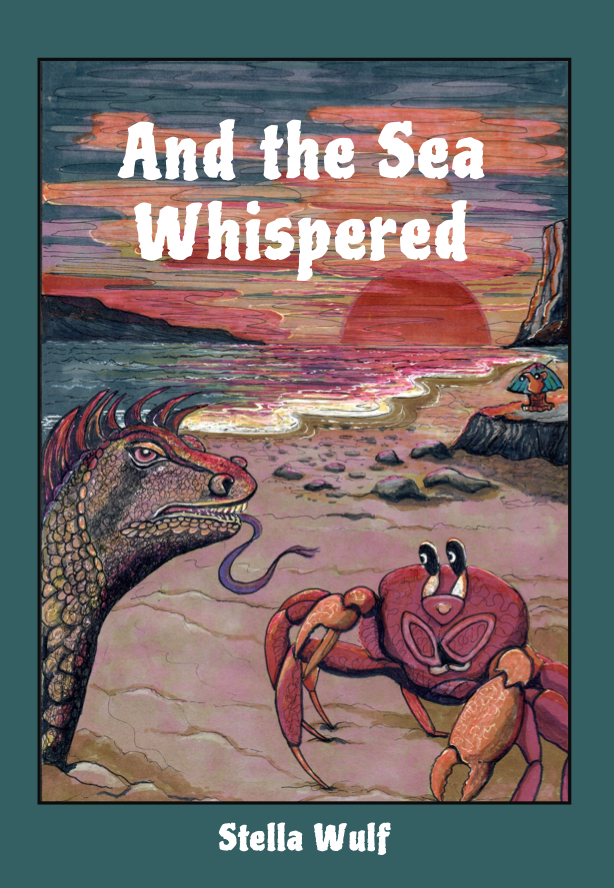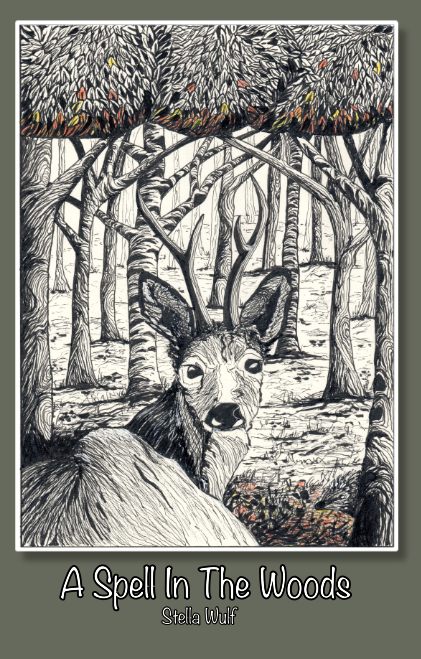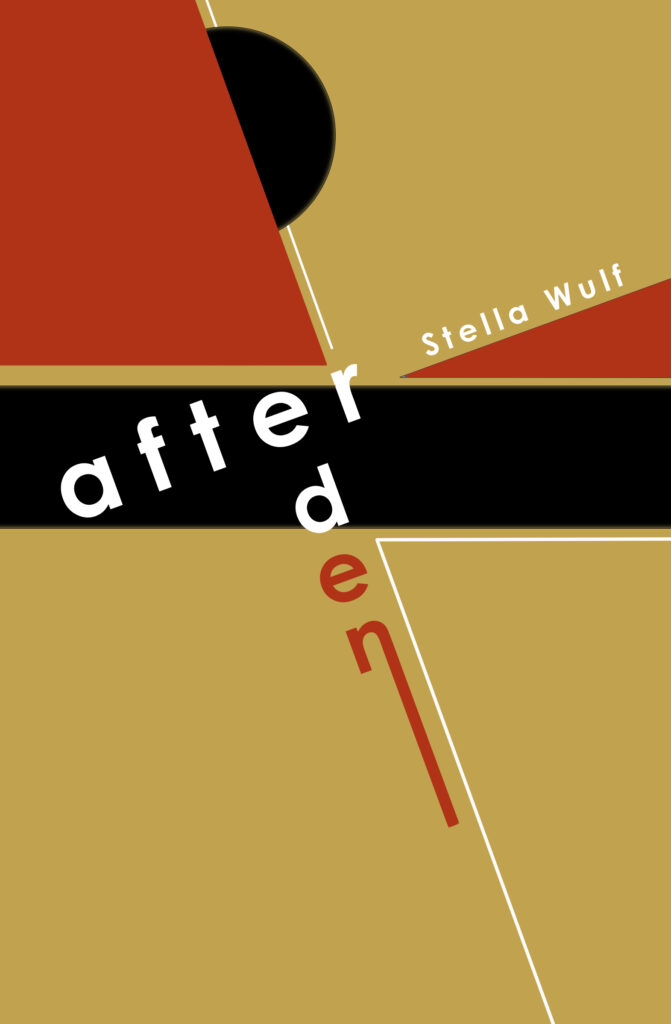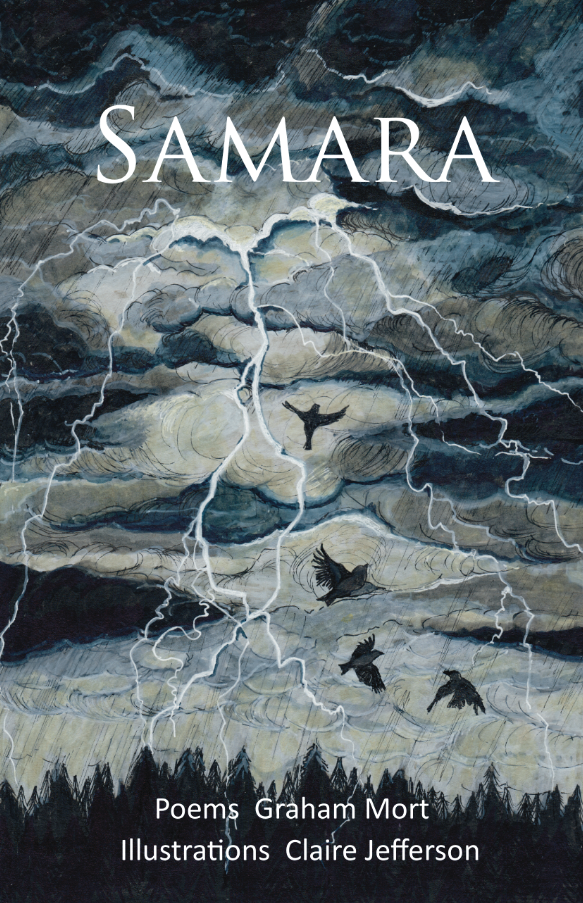Samara
Samara, an accomplished collaboration between poet and artist, celebrates the natural environment, engaging with both the liminal spaces and the creatures which inhabit them. Claire Jefferson’s exquisite illustrations are sensitive and skilful, capturing the essence of her subjects to underpin the keen observations in Graham Mort’s insightful poetry. Mort’s poems open up new perspectives, discerning the often uneasy communion between humans and the natural world, and invite us to look again. In Samara, words and pictures interweave to create a chronicle which elevates the familiar to something extraordinary and alluring.
—Lesley Quayle.
And The Sea Whispered
Crusty Scuttle’s questions are niggling him and words are getting under his shell. His best friend Molly, is a limpet and what she doesn’t know isn’t worth knowing. The sea has whispered its secrets through her shell, but in truth she doesn’t understand their meanings. When she tells Crusty that the world is an oyster he resolves to find answers. Spurred on by the hermit’s cantankerous words, ‘THE WORLD’S BEYOND REASON,’ the friends set off on an adventure that would challenge the most stalwart of explorers. Crusty’s sideways scuttle and Molly’s wobbly hop take them to places that no sea creature could ever have imagined, where they meet a myriad of creatures who either help them or are hostile to them in their quest. This is a story of hope and despair, fear and loss, friendship and trust, bound together by humour and love.
‘’If you like fantasy, wildlife, sea creatures, words, humour, tension and a cliffhanger, you are going to love this delightful quest story with a difference. Don’t take my word for it. Dive in!”
—Carole Bromley (author of Blast Off!)

Prologue - The Taste Of Loss
A Spell In The Woods
“In A Spell in the Woods, Stella Wulf shows herself to be a worthy successor to Ted Hughes, Mary Oliver and Andrew Young. As a pictorial artist we might not be surprised that she has such a clear-eyed focus upon the natural world, but what an ear she has as well! These are poems that need to be read aloud, and repeatedly, to savour their intricate harmonies. Seemingly timeless, they are all too urgently contemporary in a world we are polluting with ‘the silt of entitlement, a flood of insouciance.’”
—David Cooke
‘Stella Wulf’s A Spell in the Woods contains powerful, compelling poems of natural observation: of seeing and listening to the world around us and recreating their second life in language’
—David Morley

After Eden
A vibrant and original poetic voice is clearly discernible in these poems, and though they sometimes express delicate nuances of mood and feeling they are also highly robust. Studded with carefully framed, strikingly vivid, and often memorable images, these poems animate landscape and the human interaction with it through energetic and highly expressive uses of language. The use of assonance and rhyme is always unobtrusive and natural, the use of the speaker is poised and incisive, and narrative, often drawing on elements of myth and fairy tale, is expertly interwoven and integrated with the voice of the poem. Many of the poems are also shot through with a seam of dark humour, and the collection as a whole is highly readable and rewarding.
– Brian McCabe
From the valleys of Wales to the fields of France, Stella Wulf paints with words. This exquisitely crafted collection draws the inner lives out of objects, in the perfect detail we see whole lives. This is poetry that balances light on the edge of your cup and draws a slow finger along your back.
– Angela Readman
After Eden is a polished and assured first collection, tough and smart, sexy and fragile, haunted by plume-hushed owls and lit by cool moons and hard bright stars . Stella Wulf writes with a painter’s eye for the shape and colours of landscape, and the creatures (like crows and foxes) and the people that move through it. Her poems have a sensuous relish for texture, a language of slant rhyme and consonance that insists on being read aloud and listened to. It’s lovely.
– John Foggin

